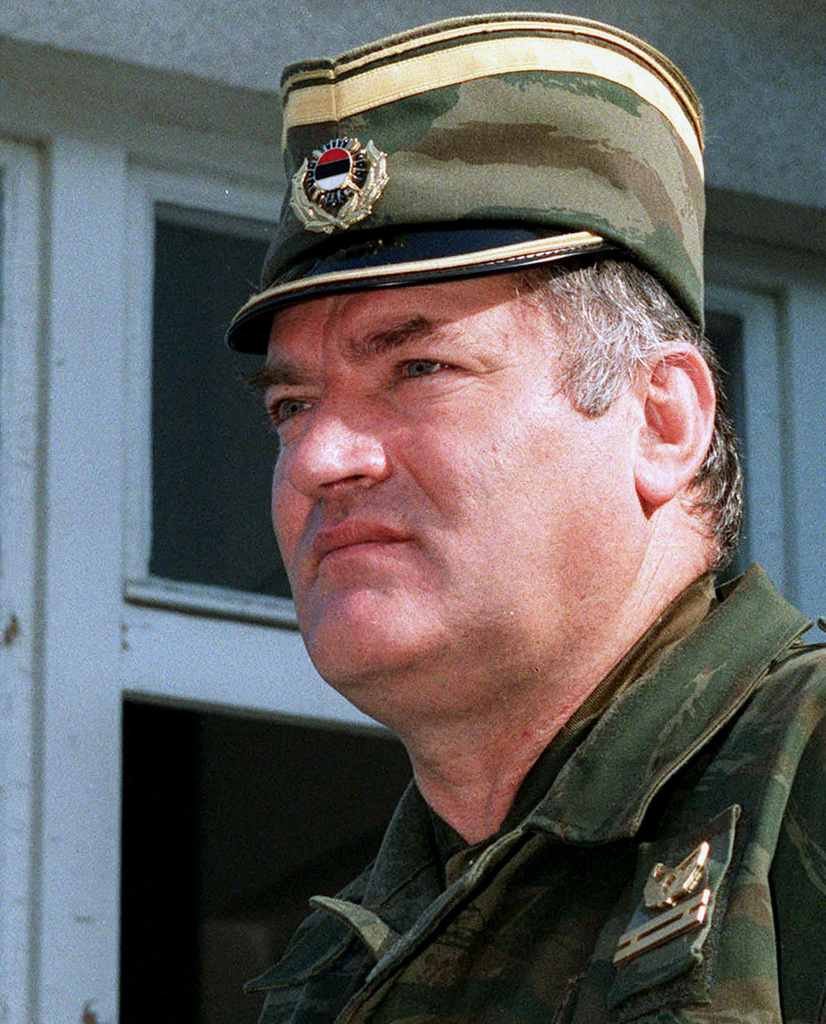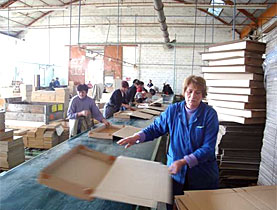Binational looks back on Croatian independence

Twenty years ago on June 25, 1991 Slovenia and Croatia declared their independence, sparking wars in the Balkans and the collapse of Yugoslavia.
In the same year, 14-year-old Croat Ivica Petrusic came to Switzerland with his family, shortly before the outbreak of war in Croatia. Now a naturalised Swiss and Social Democrat local politician, Petrusic is standing for election to the Swiss federal parliament in October.
Petrusic’s father had been working in Switzerland as a builder since the 1970s and believed the children would have brighter prospects there.
“Ordinary people didn’t realise that it would come to war,” Ivica Petrusic told swissinfo.ch. But when Croatia and Slovenia withdrew from the Yugoslav Communist Party at the end of the 1980s, the rumours started.”
“When the war in Croatia began, relatives of ours moved temporarily to Bosnia, where we had family. When war broke out there too, family members fled to Croatia,” he recalls.
Petrusic may have escaped to Switzerland, but his family did not escape the emotional impact of the war, in which some of his relatives and friends died.
He has vague memories that in the family’s apartment in Aarau “there were always a lot of people and there was a lot of talk. We organised aid convoys for the Croatian part of Bosnia, which was cut off for one and a half years”.
Petrusic had spent his childhood in central Bosnia and later near Split. It was a happy time. At first he found it difficult to adjust to life in Switzerland, not primarily because of the language, but rather the cultural differences.
“I came from a socialist school model, where the first to eighth classes all sat together. In Switzerland I was suddenly required to take part in decision-making. That was new for me, and I was overwhelmed.”
New home
When war began in the Balkans, a return to Croatia was out of the question. “I had to make an effort and accept Switzerland as my new home,” he says.
Petrusic put down roots, and trained as a draughtsman. Later he retrained as a social worker, and for the past ten years has been involved in youth work.
The Croatian-Bosnian-Swiss trinational is still struggling with the question of identity. “Where I belong is not a conscious decision. It is a process that never ends, and that is right in today’s globalised and pluralistic society.”
His Croatian culture is still important to Petrusic, who is now 34, and has spent most of his life in Switzerland. He set up a basketball association with Croatian friends, and he and his brothers and father founded a Croatian-Bosnian federation, which organises Balkan music concerts.
New identity
But Petrusic did not want to become stuck in the culture of his past, and threw himself into Swiss politics. Since 2010 he has served in the Aargau cantonal parliament. “People should be active where they live, regardless of their roots,” he believes.
After the fall of Yugoslavia, ethnic clubs boomed among the diaspora. Serbs, Bosnians, Croats and Montenegrins all had their own cafes and discos. Although this cultural distance seemed necessary after the war, the situation is different now, Petrusic says.
“Young people are more involved in Swiss culture. Among ourselves we use the term ‘Yugos’, which has nothing to do with nostalgia but is simply a Swiss term.” The young people have established a new identity for themselves, he explains.
Among the former Yugoslav republics there is also a new relationship, he says. In Serbia there are now adverts for holidays on the Croatian coast, economic ties are strengthening and there is talk of a joint football league. There is already a joint basketball league.
Time needed
The fact that the wars of the 1990s still cast a dark shadow is illustrated by the case of former Croatian general Ante Gotovina. When he was sentenced to 24 years in jail for war crimes against Serbians, many Croatians, who considered him a national hero, were outraged.
“Since the war Croatia has lived in an in-between world. Much from the past has been carried over. The people were proud of having achieved their independence, and having their own identity,” Petrusic said, adding that Croatia had to acknowledge that not everything had gone smoothly in the country’s democratisation process.
But the fact that on the 20th anniversary of Croatia’s independence, the European Union had given the green light for its accession was “very symbolic and a politically good move”, he said.
Switzerland established diplomatic relations with Croatia in 1992 and opened an embassy in Zagreb in the same year.
During Croatia’s war with Yugoslavia, Switzerland provided humanitarian aid, and between 1991 and 2003 invested SFr25 million ($30 million) in humanitarian and reconstruction aid.
Croatia is Switzerland’s second-most important trading partner in southeastern Europe. The two countries have signed a series of bilateral agreements on trade, tax and economic cooperation.
Some 35,000 Croatian nationals live in Switzerland.
Source: Swiss foreign ministry
Following elections in 1990, Croatia and Slovenia declared independence from Yugoslavia on June 25, 1991.
Unable to accept the move, Yugoslavia declared war on the two countries and directly attacked Croatia, which by the end of the year was engulfed in fighting.
In 1992, the military conflict expanded to include Bosnia-Herzegovina. It did not end until the summer of 1995.
In 2004, Slovenia was admitted as a member of the European Union.
Croatia is set to become the 28th member of the EU on July 1, 2013.
(Adapted from German by Morven McLean)

In compliance with the JTI standards
More: SWI swissinfo.ch certified by the Journalism Trust Initiative















You can find an overview of ongoing debates with our journalists here . Please join us!
If you want to start a conversation about a topic raised in this article or want to report factual errors, email us at english@swissinfo.ch.